Etching on marble countertops is a common issue that many homeowners face, especially those who have invested in the timeless beauty of marble for their kitchen or bathroom surfaces. While marble is renowned for its elegance and durability, it is also susceptible to etching, which can detract from its appearance over time. In this comprehensive guide, we’ll delve into what causes etching on marble countertops, how to prevent it, and the steps you can take to restore your countertops to their former glory if etching does occur.
Marble is a natural stone composed primarily of calcite, which is sensitive to acids. This means that acidic substances, such as citrus fruits, vinegar, and certain cleaning products, can react with the marble surface, causing etching. When these acidic substances come into contact with marble, they essentially eat away at the surface, leaving behind dull, whitish marks known as etch marks.
Preventing etching on marble countertops begins with understanding what substances can cause damage. Avoid placing acidic items directly on the countertop surface, and use coasters or placemats to protect the marble from spills and stains. Additionally, choose cleaning products specifically formulated for marble or opt for gentle, pH-neutral cleaners to avoid inadvertently causing etching.
Regular maintenance is also key to preserving the beauty of marble countertops and preventing etching. Wipe up spills promptly to prevent acidic substances from lingering on the surface, and use a soft cloth or sponge to clean the countertops gently. Avoid abrasive scrubbing pads or harsh chemicals, as these can scratch or damage the marble.
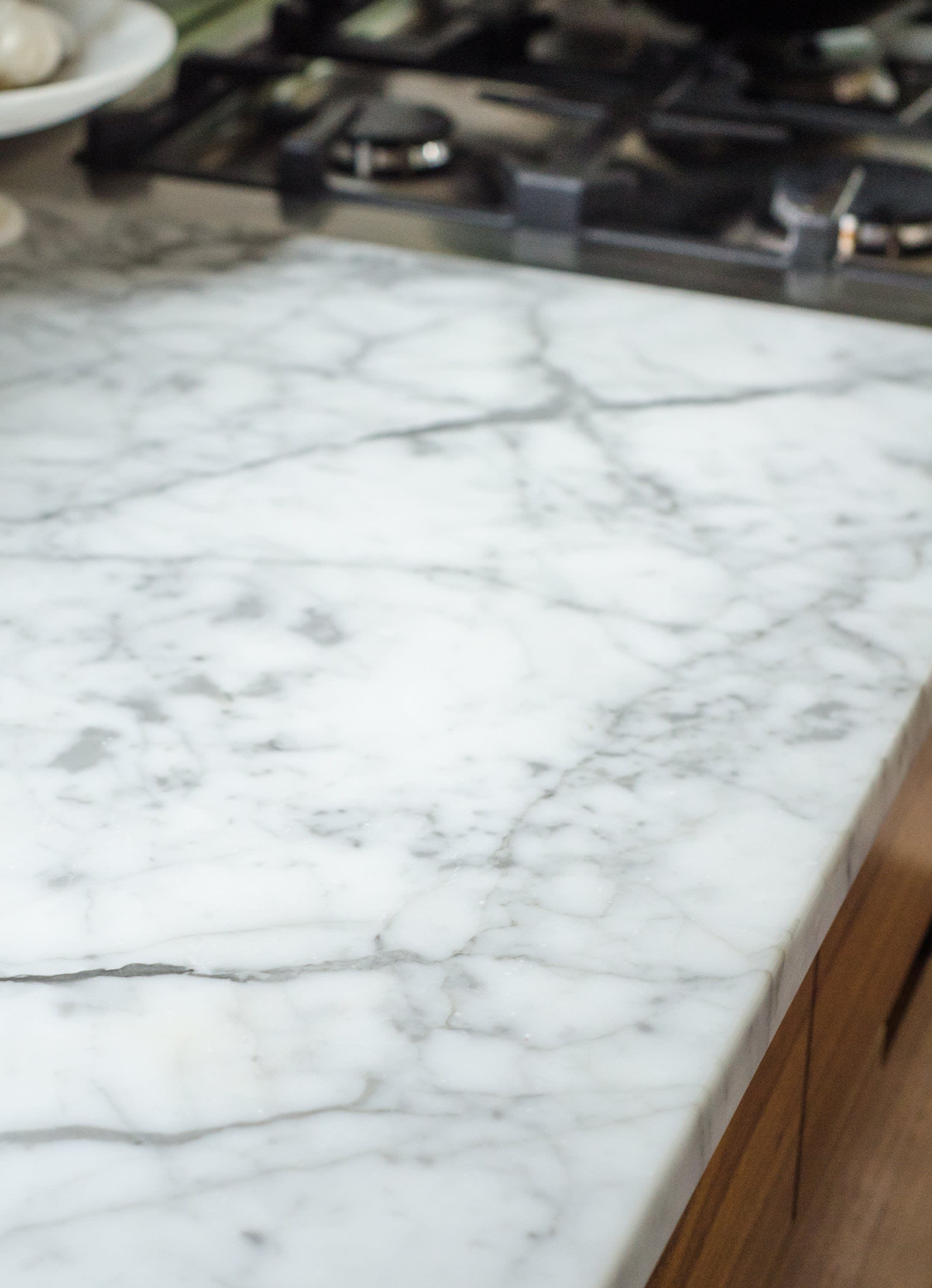
If etching does occur on your marble countertops, don’t panic. There are several methods you can try to restore the surface and minimize the appearance of etch marks. One common approach is to use a marble polishing powder or paste, which can help to buff out minor etch marks and restore the shine to the surface. Alternatively, you can enlist the help of a professional stone restoration specialist who can assess the extent of the damage and recommend the best course of action for repair.
When it comes to preventing etching on marble countertops, one of the most common mistakes homeowners make is using harsh or abrasive cleaners that can damage the surface of the marble. It’s important to choose cleaning products specifically designed for marble or opt for gentle, pH-neutral cleaners to avoid causing etching.

Another common mistake is neglecting to wipe up spills promptly, allowing acidic substances to sit on the marble surface and cause damage over time. To prevent etching, it’s essential to clean up spills as soon as they occur and avoid letting acidic liquids linger on the countertop.
Using abrasive scrubbing pads or harsh cleaning tools is also a mistake that can lead to etching on marble countertops. These abrasive materials can scratch the surface of the marble, making it more susceptible to damage from acidic substances. Instead, opt for soft cloths or sponges when cleaning marble countertops to avoid causing etching.
Additionally, some homeowners make the mistake of neglecting regular maintenance of their marble countertops, which can leave the surface vulnerable to etching over time. To keep your countertops looking their best and prevent etching, be sure to clean them regularly with gentle cleaning products and wipe up spills promptly.
Finally, failing to seal marble countertops properly is a common mistake that can contribute to etching. Sealing helps to protect the surface of the marble from moisture and acidic substances, reducing the likelihood of etching. Be sure to seal your marble countertops regularly, following the manufacturer’s recommendations for frequency.
Images Related to Etching On Marble Countertops
Here’s What an Etch on a Marble Countertop Looks Like
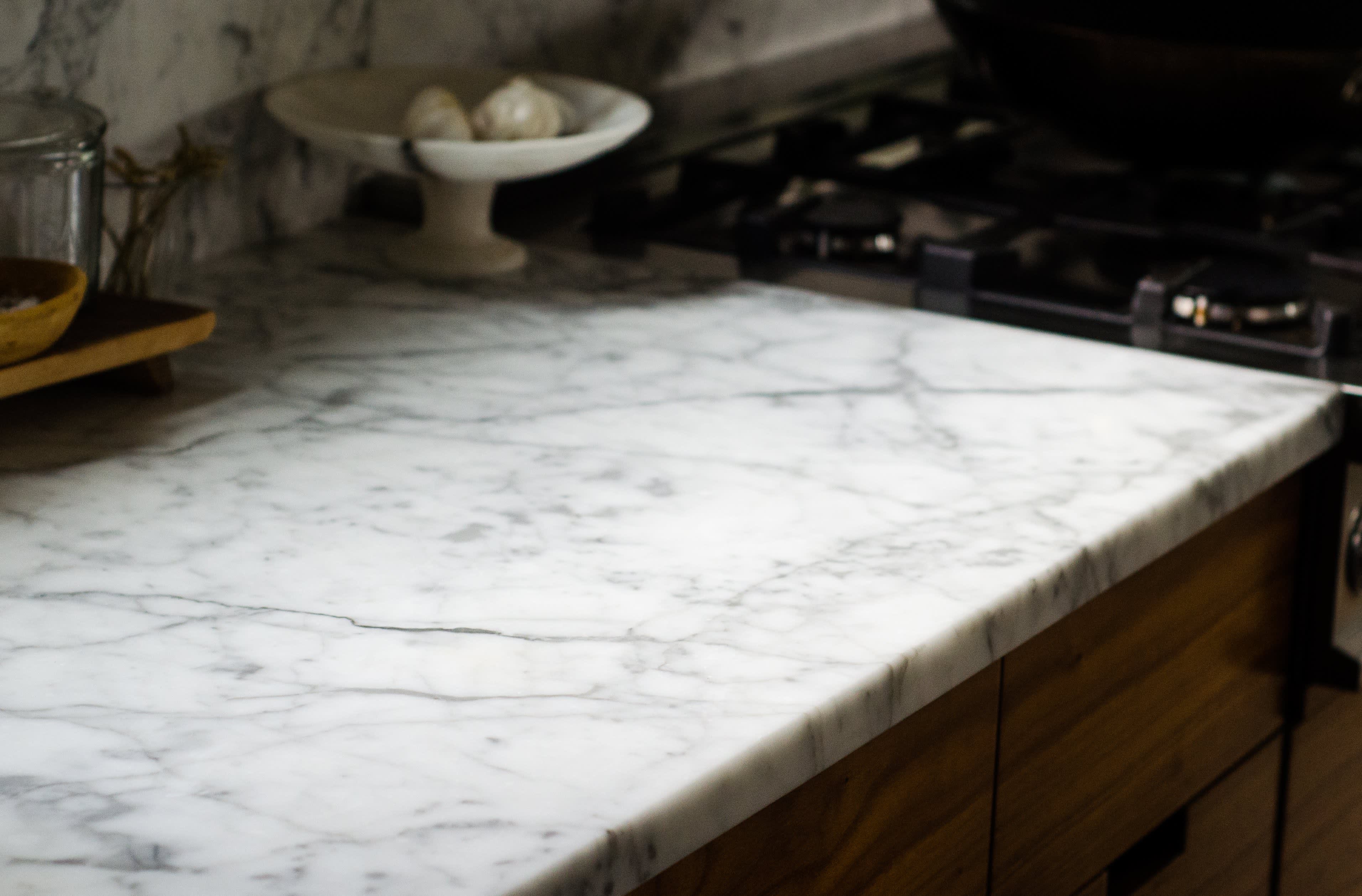
Can I use lemon juice to clean my marble countertops?
While lemon juice is natural and may seem like a gentle cleaner, it is acidic and can cause etching on marble countertops. It’s best to avoid using lemon juice or any other acidic substances on marble surfaces.
How often should I seal my marble countertops to prevent etching?
The frequency of sealing marble countertops depends on factors such as usage and exposure to moisture. As a general guideline, it’s recommended to seal marble countertops every 6 to 12 months to maintain protection against etching and staining.
Can I use vinegar to remove etch marks from marble countertops?
Vinegar is acidic and can exacerbate etching on marble countertops. It’s not recommended to use vinegar or any other acidic substances to remove etch marks. Instead, consider using a marble polishing powder or consulting a professional for restoration.
Are there any DIY methods for repairing minor etch marks on marble countertops?
Yes, there are DIY methods such as using a marble polishing powder or paste to buff out minor etch marks. However, it’s important to follow the product instructions carefully and test in a small, inconspicuous area first to ensure compatibility with your marble surface.
How can I prevent etching while still enjoying my marble countertops?
To prevent etching on marble countertops, avoid placing acidic items directly on the surface, promptly clean up spills, use coasters or placemats, choose gentle cleaning products, and seal the countertops regularly. Additionally, consider investing in marble with a honed or leathered finish, which may be less prone to showing etch marks compared to polished marble.
How to get rid of marks on marble – The Washington Post
How To Remove Stains And Etches From Marble Countertops

Here’s What an Etch on a Marble Countertop Actually Looks Like
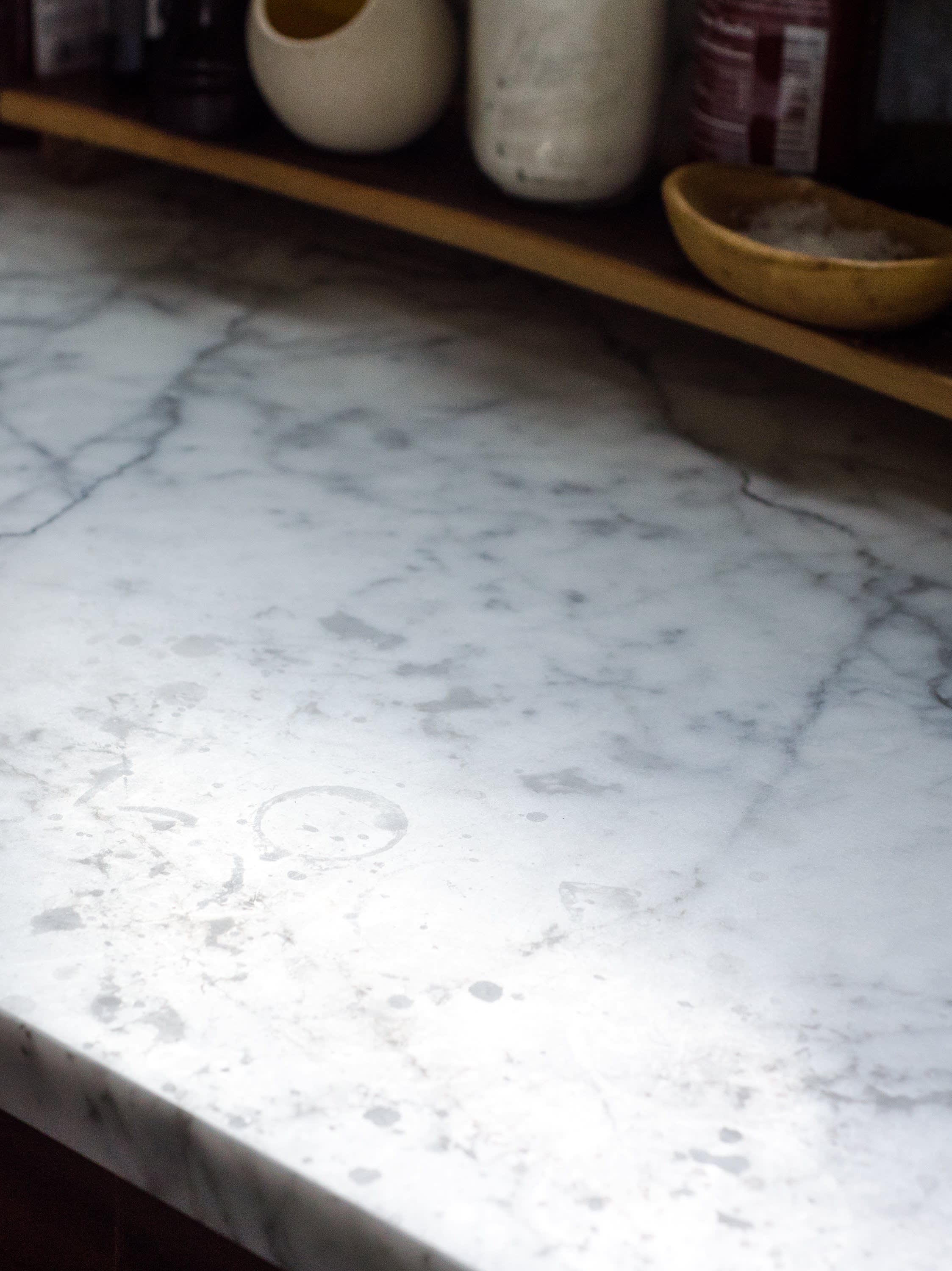
ETCH MARKS ON MARBLE WWW.STONE-REPAIRS.COM
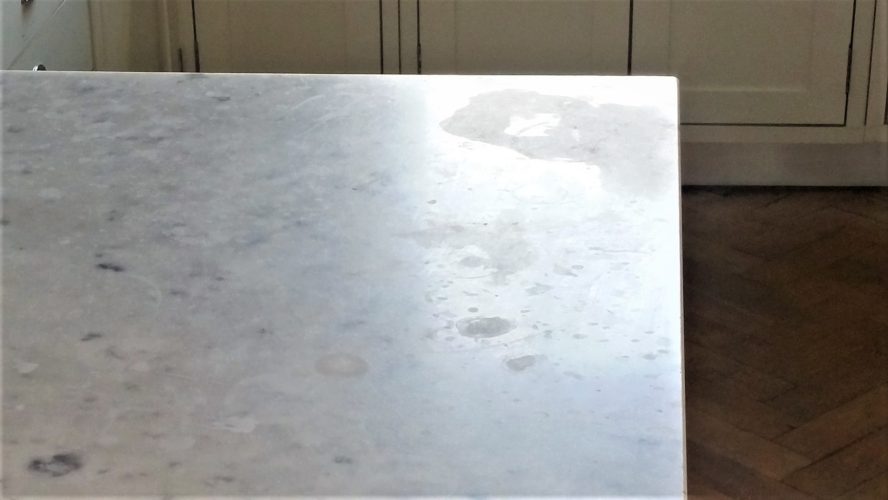
Why does marble etch? – Stone Center Inc

Etching on carerra marble! 🙁
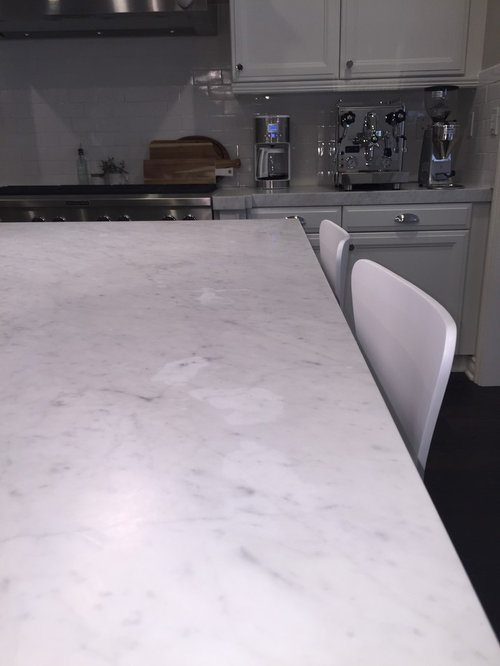
Marble Stain or Etch? How to Tell The Difference – The Marble Clinic

Related articles:
- Refinishing Cultured Marble Countertops
- White Marble Countertops
- Marble Countertops Backsplash
- DIY Refinishing Cultured Marble Countertops
- Marble Countertops In Bathrooms
- Cultured Marble Countertops
- Gray Kitchen Cabinets Marble Countertops
- Modern Kitchen Marble Countertops
- Refinish Cultured Marble Countertop
- Carrara Marble Countertops Bathroom
